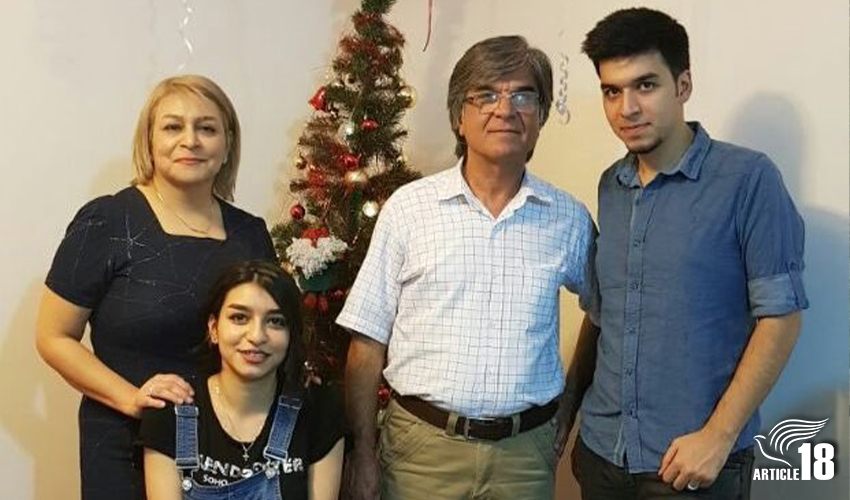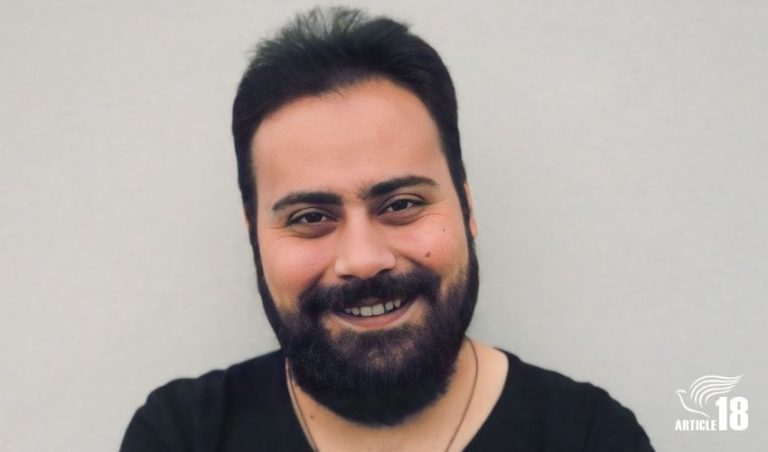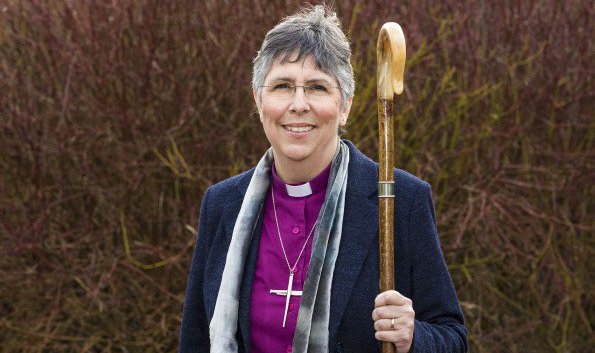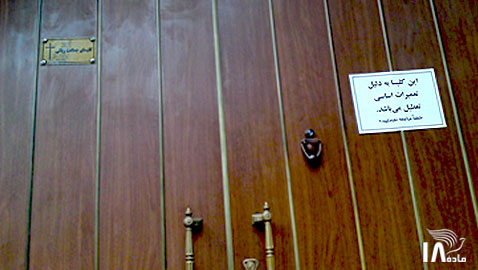
When the Shekoohi family converted to Christianity, it was a decision for which every member would pay a heavy price.
For the father, Esmail, it meant more than three years in prison.
It also meant nine months in prison for the mother, Fariba, while their son, Nima, had to endure 38 days in solitary confinement at the age of 17, and, like his mother, was later handed a suspended prison sentence.
For the daughter, Helma, who was just 12 years old when intelligence agents raided the house-church service taking place in their home, the impact was mostly felt at school, and also in having to live with other relatives and friends for the months when both her parents were in prison.
For the first year of Esmail’s imprisonment, Helma wasn’t able to visit him even once.
She says it even took “three or four months” to be able to see her mother for the first time, while for the first month of their detention she had not even been able to speak to them over the phone.
Esmail was in his late 40s when he converted to Christianity in 2006, having battled against a drug addiction for the three decades prior.
Fariba, who came from a religious Muslim family, converted nine months later, having seen the dramatic change in her husband, despite initially threatening to divorce him for his decision to follow Christ.
But even after uniting over their faith decision, life was far from easy for the newly converted couple and their children, even before their arrest.
There was pressure from family members regarding their decision to turn their backs on Islam; there was derision for Helma at school; and even in practical terms, the life of a Christian convert in Iran was far from straightforward.
It took three months after his conversion for Esmail to even get his hands on a Bible, and several more months to find a place in which he could worship with other Christians.
Esmail explains that there was just one church in their city, Shiraz – the same church in which another convert, Arastoo Sayyah, had been murdered just a week after the Islamic revolution of 1979 – but that this church was heavily surveilled and banned from accepting new members.
“In such an atmosphere, it becomes difficult to even pray in that place,” Esmail says. “That’s why we never went to that church, because there was a heavy security atmosphere.”
He adds: “The desire for worship comes from a basic need to express a belief that you have, whether Islamic, Baha’i, or Christian. But the reality in Iran is that most of the churches have been closed down, or we [converts] are forbidden from attending their meetings. So you can’t talk about your faith; you can’t have fellowship with other Christian believers; and you can’t be educated [about your faith] and as a result grow in the faith your heart has accepted.”
Ultimately, the converts found they had just one place in which they could worship with other Christians: in their homes, where Esmail says that “at least our meetings were hidden from the eyes of government officials”.
But, as they would soon discover, even this choice was not without consequences.
Just two years after Esmail’s conversion, in May 2008, he and Fariba were arrested for the first time as they attempted to board a plane for Dubai, where they were to attend a Christian conference.
On that occasion Fariba was released later that day and Esmail two weeks later, but only after being forced to sign a pledge to have no further contact with other Christians.
The threat, should he fail to comply, was made clear: lifetime imprisonment, or even execution.
So when, two years later, the couple were arrested again, it was clear from the outset that the cost would be greater, even if the agents’ gravest threats weren’t realised.
Of the family of four, only Helma wasn’t arrested that night in February 2012.
But the tearful 12-year-old girl was forced to watch as her father, mother and brother were taken away, then placed in separate solitary cells for more than a month.
Fariba explains how she hadn’t even been aware that their 17-year-old son had also been arrested until one day she heard his voice in the interrogation room to which all three had been brought.
“The fact that my son, who was a minor at the time and was in the middle of his exams, had also been arrested and sent to prison was in itself a kind of torture for me,” Esmail says.
Nima’s parents were then told that if their son didn’t “cooperate”, he would be flogged, and beaten in front of their eyes.
Fariba recalls that the interrogator also said: “Of course, we have also been very kind to him by beating him many times.”
“Suddenly, Nima started to cry and said: ‘Mum, they beat me a lot; they beat me every day!’” she adds.
But even after the months or, in Esmail’s case, years in prison were finally over, the challenges continued for the Shekoohis.
Esmail says that one of the hardest things for him was regularly seeing his daughter returning home from school in tears, because of the comments made by teachers or other pupils about her Christian faith.
Meanwhile, their home was attacked by members of the Basij, a paramilitary group of the Islamic Revolutionary Guard Corps, who smashed the windows and tossed rubbish and lit cigarette lighters into their yard.
But perhaps hardest of all, Esmail says, was that the family now really had no place at all in which to worship.
“When I was released from prison, it wasn’t possible to hold church meetings in our home anymore, because we were under surveillance,” he says. “And not having a church or group worship was very difficult for me, and we felt that we couldn’t continue without a church.”
Esmail explains how he once went to a church, but was told its doors were shut to all but members.
“I stood there for about two hours, but nobody opened the door,” he says.
Nima had also been forced to abandon his studies, and in the end it all became too much for the Shekoohis, and in late 2015 they took the hard decision to flee their homeland, and seek asylum elsewhere.
After five years in Turkey, the Shekoohis are now based in Canada, but Esmail and Fariba fear the trauma their children were forced to endure has left lasting scars.
And while Esmail expresses gratitude for the support he and his family received during his time in prison, he says he did wonder at one point what had happened to the wider Church body.
When his wife became sick during his imprisonment and couldn’t afford her treatment, Esmail says that he cried out: “God, I’m in prison for believing in you, and I’m willing to do anything for my faith, and even accept the death penalty. But why doesn’t someone help my family? Where is the Church?”
But he adds: “While it’s true that the Church didn’t do its duty and didn’t support us at that time, the main point I’d like to make is that I had always done what was right and what my faith had told me, that this faith is worth the suffering we endured, and if we could go back in time, we’d walk the same path.”
You can read the Shekoohi family’s full Witness Statement here.



0 Comments
Trackbacks/Pingbacks